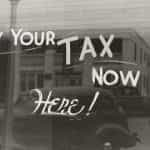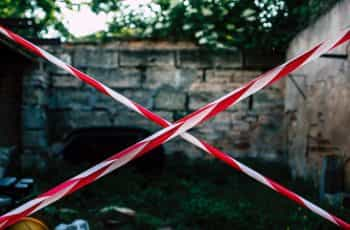Tax Evasion Accusations in Dominican Republic Lottery
Teófilo “Quico” Tabar recently added fuel to the ongoing battle between the Dominican Republic’s National Lottery and Fenabanca — the federation in charge of betting shops or “bancos.” Tabar, the president of the National Lottery, publicly accused Fenabanca of tax evasion, blackmail and intentionally disorderly conduct via an open letter he penned this week. Tabar pulled no punches in the letter, showing his clear disdain for the illegal practices of the federation.

The Dominican Republic’s federation for small bookmakers has been accused of aiding its members to evade taxes amidst recent regulatory pushes. Alexander Grey/Unsplash
History of the conflict
Fenabanca has been on Tabar’s radar for a long time. Over the course of his leadership of the Dominican lottery, an effort has been made to regulate “bancos,” lotto ticket sellers and bookmakers that operate out of brick-and-mortar establishments, big and small, across the country. Finally, a push for regulation was picked up by the national government in line with Tabar’s wishes.
Tabar’s initial plan was announced a year ago, but the measure did not receive an official backing until February of this year. It is officially underway now, though Fenabanca has not been completely cooperative, thus Tabar’s recent letter.
The regulation proposed that the country’s Ministry of Finance would create stricter rules for the “bancos” and for Fenabanca, putting power into the hands of a third party. Furthermore, ticket sellers and bookmakers were obligated to register themselves with the new authority.
Registration would provide valuable information about the ticket seller so they could be more easily observed by authorities to make sure they abide all laws. One such rule has to do with the proximity to schools and other outlawed places for taking bets; though this law has been in effect for a while, Fenabanca has not complied with shutting down all locations that are not in compliance.
Registering would also provide information for tax gathering purposes. As Tabar has accused, many of these locations have not consistently paid tax on their income. Those who have operated outside of the law would face consequences and possibly not be allowed to sell anymore.
Sellers were to register by April 2022, but the deadline was extended twice, first to June and then to July. In July, the lottery shared a public list of registered ticket sellers so that buyers could know who is in compliance with current laws. The list is still available on the Directorate of Casinos and Games of Chance’s official website.
Those that are not registered will not be allowed to continue operating. In fact, the Directorate of Casinos and Gambling declared in August that unregistered sellers will face closure and having their equipment seized. Unfortunately, the lottery has not been without its own controversy, having recently faced trials for a large-scale corruption case.
Tough words for Fenabanca
Despite the clear rules set out in the regulation process, Fenabanca first responded by asking the government to not charge provisional taxes to registered “bancos.” They were told, however, that payment would be mandatory, which has led to a renewed sense of conflict between the various agencies.
Teófilo Tabar did not mince words when writing to Fenabanca recently to express his disappointment in their lack of cooperation in the regulation scheme. His letter to Fenabanca’s president, Rubén Jiménez, outlined his various grievances following Fenabanca’s recent protests outside parliament.
Tabar accused Fenabanca’s employees of speaking out only to avoid their own taxation and said they behaved like “lawless goats.” He pointed out the hypocrisy in blaming the government for not cooperating when actually it is Fenabanca that does not cooperate, in his opinion
He went on to claim that Fenabanca is protecting its members by presenting them as victims, but that they have benefited from a disorderly system for over a decade. He said they continue to propagate disorder — rather than registering and complying with regulations — in order to collude towards non-regulation of the industry. Tabar added that Fenabanca allows itself to be blackmailed by those it represents, rather than stand up to them and act in line with the law.
Overall, Tabar’s words were strong and left little to argue with. As he stated, the law has been set now, therefore it will be up to Fenabanca to comply eventually. Until then, the federation seems to be dragging out an inevitable process of regulation and collection of due taxes from its members.



